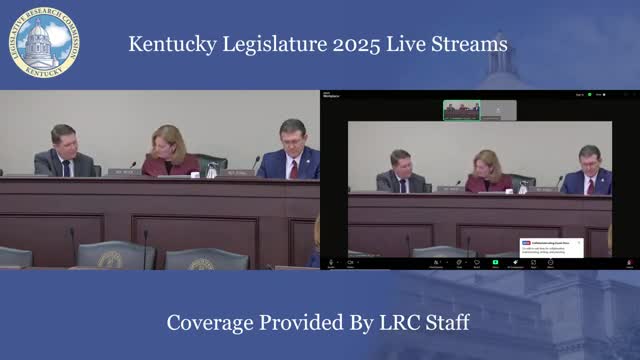Board of Interpreters debate recognition of EIPA for full licensure; committee hears oversight concerns
Get AI-powered insights, summaries, and transcripts
Subscribe
Summary
Kentucky Board of Interpreters representatives told the Committee on Health Services that the Educational Interpreter Performance Assessment (EIPA) should not be treated as a national certification for full licensure, citing scope-of-practice and oversight risks.
Kentucky Board of Interpreters leaders told the Committee on Health Services that the Educational Interpreter Performance Assessment (EIPA) should not be recognized as sufficient for full, statewide licensure for interpreters for the deaf and hard of hearing.
Marva Johnson, chair of the Kentucky Board of Interpreters, told the committee the EIPA is an education-focused assessment for school settings and is not a nationally recognized certification that demonstrates readiness to serve across clinical, legal, or community settings. The board said recognizing EIPA for full licensure has allowed some educational interpreters to work outside their training and scope, creating confusion for hiring entities and raising oversight concerns.
Representative Callaway and committee members asked whether the board sought a provisional license category or statutory change to separate educational interpreter credentials from a full license. Johnson said the board lacked authority under current statutory language to treat EIPA as a national certification and that creating a separate statutory category for educational interpreters might address the gap while preventing educational-only credential holders from serving in clinical or legal settings without additional qualifications.
The committee's discussion noted earlier administrative-regulations concerns that stricter certification requirements could make it harder for out-of-state interpreters to obtain Kentucky licensure amid an existing statewide shortage of interpreters. Johnson said the board's stance was not intended to restrict access but to ensure that full-license holders meet standards established by nationally recognized certifying bodies and that hiring entities understand the difference between entry-level, educational, and full-community interpreter credentials.
Committee members asked the board to work with stakeholders on potential statutory language or regulatory fixes that would preserve appropriate access for schools while clarifying scope, certification, and oversight for community, medical, and legal interpreting.
